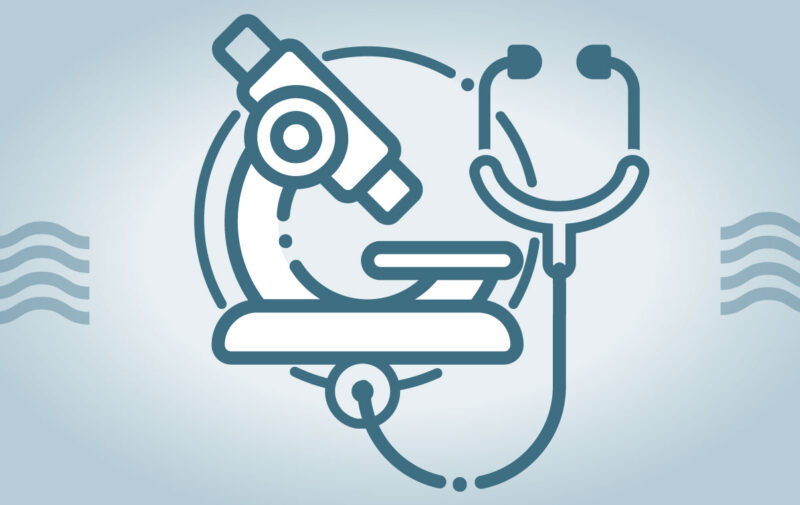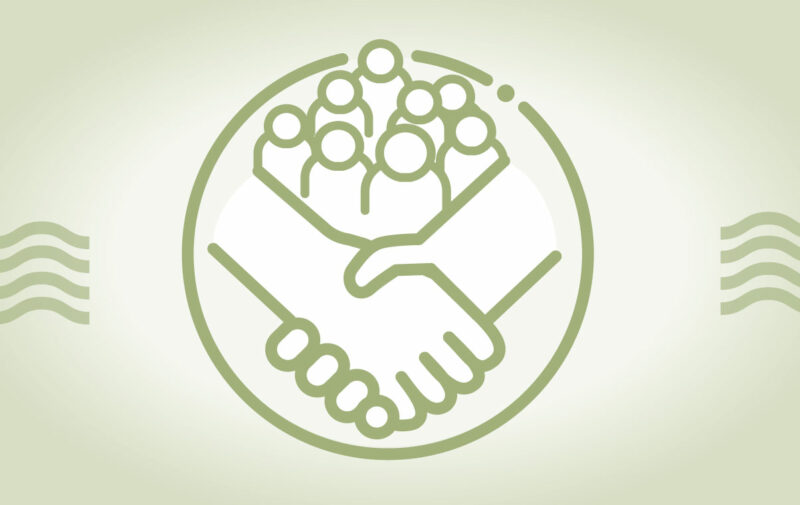
COVID-19 Response Grant
The Role of Social Media and Community Advocates in Addressing the Health Consequences of COVID-19 in Black, Latinx and American Indian Communities
Awarded in
2021
Carey Gleason, PhD, associate professor, Department of Medicine, and co-principal investigators Maria Mora Pinzon, MD, MS, assistant scientist, Department of Medicine, and Melissa Metoxen, senior student services coordinator at the Native American Center for Health Professions were awarded a COVID-19 Response grant for utilizing social media and community advocates to address health consequences of COVID-19 in Black, Latinx and American Indian communities. The overarching goal of this project is to continue disseminating accurate information created by community advocates through social media about COVID-19 and evaluate the effectiveness of social media messages on changing beliefs, attitudes, and adoption of behaviors related to COVID-19 and vaccination.

COVID-19 Response Grant
Growing Good People: Understanding Self and Resiliency
Awarded in
2021
This grant has ended.
Menikanaehkem, a grassroots organization based on the Menominee Reservation in Northeast Wisconsin, will use its grant to help build behavioral, social and hands-on skills for youth as they learn about their native language and cultures, and nature-based healing and resilience. This project promotes mental, physical, spiritual and emotional wellness through practices that are traditional to the Menominee tribal people.

COVID-19 Response Grant
Supporting Youth Through the La Crosse System of Care
Outcome Report
Awarded in
2021
This project, led by La Crosse County Human Services, aimed to enhance the La Crosse System of Care (SOC) through the addition of two part-time community cultural liaisons to help address the social and emotional health needs of adolescents. The La Crosse SOC supports youth by prioritizing mental health, safety and self-sufficiency over punitive measures, through a partnership between the School District of La Crosse and La Crosse County. Nearly 50 percent of referred youth are racially diverse, highlighting the need for more cultural liaisons to address current racial tensions and the disproportionate impact of COVID-19 on minority communities.
The project successfully improved the La Crosse SOC and advanced adolescents’ social and emotional health by forming meaningful connections between 49 Black youth and caring adults. This led to improved school attendance, participation in activities and greater parental involvement. The project also increased workforce diversity and community support capacity by adding cultural liaison positions. Finally, La Crosse County Human Services strengthened and expanded networks and partnerships which created opportunities for youth and supported parents and caregivers.

COVID-19 Response Grant
PATCH Youth Advocacy Fellowship for Social and Emotional Health
Outcome Report
Awarded in
2021
PATCH Youth Advocacy Fellowship for Social and Emotional Health aimed to engage Wisconsin youth as key partners and experts in addressing the social and emotional health (SEH) impacts of COVID-19. PATCH (Providers and Teens Communicating for Health), is a Wisconsin-based program that aims to improve adolescent health and well-being by engaging, educating and empowering youth and adults to partner for positive change.
The PATCH Youth Advocacy Fellowship successfully completed two years of programming, offering 25 youth a 10-month opportunity to gain skills and lead community advocacy projects, such as creating widely adopted suicide response policies for schools. The fellows consulted with over 30 organizations and contributed their voices and perspectives to a number of events typically reserved for adults. Comprehensive evaluation led to the fellowship’s replication in Ohio and the launch of the PATCH Alumni Impact Study. The PATCH Youth Advocacy Fellowship, now renamed the PATCH Teen Consultant Program, continues to empower youth and expand opportunities for meaningful engagement in health advocacy.

COVID-19 Response Grant
Supporting the Mental and Social-emotional Health Needs of Black, Brown, Multiracial, Trans & Nonbinary LGBTQ+ Adolescents Impacted by COVID-19.
Awarded in
2021
GSAFE, an organization working to create school communities where all LGBTQ youth and students thrive, has received a grant to deliver critically needed social-emotional supports to some of the most vulnerable adolescents in Wisconsin. This project aims to support BIPOC, Trans, Nonbinary LGBTQ+ adolescents impacted by COVID-19 through new programs and resources that expand pathways to youth leadership and increase educators’ ability to provide affirming and inclusive classrooms and schools.

COVID-19 Response Grant
A Call to Action: Compassion Resilience Training for Parents and Family Caregivers
Outcome Report
Awarded in
2021
National Alliance on Mental Illness (NAMI) Southeast Wisconsin, Inc, was awarded a grant to adapt and expand the capacity of the “Compassion Resilience Toolkit,” a resource for parents and caregivers supporting youth with mental health needs. In partnership with Rogers Behavioral Health, this project established caregiver groups and facilitator training to create psychologically safe spaces for skill development and resilience building. As a result, parents and caregivers became better equipped to reduce compassion fatigue and increase their ability to support their children facing mental health challenges as they move through and beyond the pandemic. In addition, the team partnered with Milwaukee’s CORE El Centro to recruit and train Spanish-speaking parents and caregivers as group facilitators.

COVID-19 Response Grant
Widespread Protective Immunity Screening Against COVID-19 Using a Point-of-Care Serology-profiling Biosensor
Outcome Report
Awarded in
2021
Filiz Yesilkoy, PhD, assistant professor, UW–Madison College of Engineering, Department of Biomedical Engineering, and co-principal investigators Irene Ong, PhD, assistant professor, Department of Obstetrics and Gynecology and Miriam Shelef, MD, PhD, associate professor, Department of Medicine, developed a user-friendly, cost-effective, point-of-care serology test for monitoring protective immunity against COVID-19. By developing this biosensor platform, investigators can more easily assess vaccination status, past infection status and protective immunity to inform communities in Wisconsin of the risk of COVID-19.

COVID-19 Response Grant
Predicting Patient Outcomes in Wisconsin and Nationwide Using the University of Wisconsin’s COVID-19 EHR Cohort Database
Outcome Report
Awarded in
2022
Using the COVID EHR Cohort at the University of Wisconsin (CEC-UW), this project aimed to analyze the disproportionate impact of COVID-19 on racial and ethnic minority groups in Wisconsin, compare disease outcomes between UW Health and other health systems and test associations between risk factors, treatments and vaccine status with disease outcomes. CEC-UW has been collecting electronic health record (EHR) data from all COVID-19 patients across 21 participating health systems and, as of September 2021, has compiled more than 250 EHR elements from 1.1 million COVID-19 patients. This data has the potential to help target high-risk individuals, improve treatment, guide variant management and enhance response to future disease outbreaks.
The results revealed that Black and Hispanic communities, along with low-income groups, faced significantly higher infection rates and more severe COVID-19 outcomes. Comparison of outcomes between health systems showed that UW Health patients had better recovery rates and lower mortality due to more effective health strategies, including advanced treatment protocols and higher vaccination rates. Finally, the project found that early treatments and full vaccination greatly improved outcomes, while those with underlying conditions or lack of vaccine access faced worse outcomes.

COVID-19 Response Grant
Responding To Dual Epidemics of COVID-19 and Overdose Among People Who Inject Drugs in Wisconsin
Outcome Report
Awarded in
2021
Rachel Gicquelais, PhD, MPH, assistant professor, UW–Madison School of Nursing, and co-principal investigator Ryan Westergaard, MD, PhD, MPH, associate professor, Department of Medicine, used a COVID-19 Response grant to address the dual epidemics of COVID-19 and drug overdose. With a focus on rural Wisconsin residents, the goal of this project was to understand patterns of overdose risk, COVID-19 vaccine willingness, and related attitudes and behaviors. Investigators also tested a novel mobile health intervention to support vaccine uptake in people who inject drugs.

COVID-19 Response Grant
Evaluating COVID-19 Response Efforts to Improve Health and Racial Equity in Milwaukee County
Outcome Report
Awarded in
2021
This project, led by the UW Population Health Institute, aimed to analyze data relating to Milwaukee County’s rapid dissemination of $77.4 million in COVID-19 relief funding in order to assess investments addressing social determinants of health and racial equity strategies. Milwaukee County was the first municipal government in the country to declare racism a public health crisis and was among the first to collect race and ethnicity data that helped guide efforts to prevent the spread of COVID-19 in communities of color.
The project team successfully assessed Milwaukee County’s investments in social determinants of health and racial equity strategies, collaborating with county leaders and analyzing funding data from state claims and federal expense reports. Their analysis showed that Milwaukee County made significant efforts to ensure equity for marginalized populations affected by COVID-19, particularly through the $12 million Small Business Recovery Grant program. This program distributed grant monies to minority, woman and veteran-owned businesses, with 66% of the 1,551 grant recipients falling into these categories. Additionally, the Milwaukee County Department of Administrative Services Economic Development Division created an interactive map to visualize the locations of funded businesses.